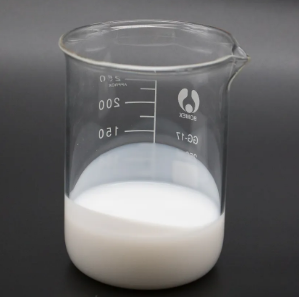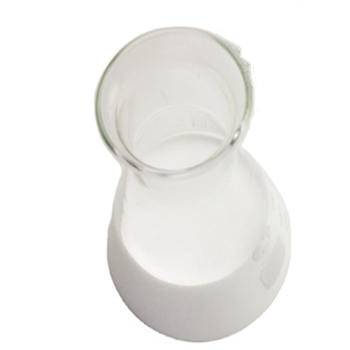Intro to Water-Based Zinc Stearate: Connecting Performance and Sustainability in Modern Manufacturing
Water-based zinc stearate is an eco-friendly choice to solvent-based lubricants and launch representatives, supplying exceptional efficiency with very little environmental impact. As industries shift toward greener manufacturing approaches, this aqueous diffusion of zinc stearate has actually gained prestige across industries such as rubber handling, steel developing, concrete spreading, and polymer production. Its capability to supply effective lubrication, prevent bond, and lower surface defects makes it a flexible device in modern-day industrial applications. With expanding regulatory pressure on volatile organic substance (VOC) exhausts, water-based zinc stearate sticks out as a tidy, effective, and scalable service.
(TRUNNANO Water Based Zinc Stearate)
Chemical Make-up and Functional System
Zinc stearate is a metallic soap created by the response of stearic acid with zinc oxide or zinc salts. In its water-based formula, it is normally spread utilizing surfactants or emulsifiers to ensure security and consistent application. When applied to surface areas, the zinc stearate bits develop a slim, hydrophobic movie that decreases friction and prevents direct call in between materials. This mechanism is vital in mold and mildew release procedures, where it promotes simple demolding without damaging the end product’s surface honesty. Additionally, its high melting factor (~ 120– 130 ° C) permits it to perform efficiently under moderate thermal problems, preserving functionality throughout high-temperature procedures.
Applications in Rubber and Polymer Handling
In rubber manufacturing, water-based zinc stearate serves twin purposes– as a mold launch agent and as an interior lube. It prevents sticking in between uncured rubber substances and mold and mildew surfaces, making certain consistent part top quality and minimizing post-processing initiatives. In thermoplastics and elastomers, it enhances circulation residential properties during extrusion and injection molding, minimizing pass away build-up and enhancing surface finish. Its compatibility with various polymers, including polyolefins, PVC, and design resins, better expands its energy. In addition, its non-reactive nature guarantees it does not conflict with treating or vulcanization reactions, maintaining material efficiency characteristics.
Duty in Steel Forming and Stamping Industries
The metalworking industry progressively relies on water-based zinc stearate for cool and warm forming operations. Made use of as a lubricant in stamping, attracting, and forging, it creates a safety limit layer that decreases tool wear and improves part surface quality. Compared to oil-based or wax finishes, it supplies much better warm dissipation and cleaner procedure, which is especially beneficial in automatic production lines. Additionally, its convenience of elimination after handling– utilizing easy water rinsing or light detergents– reduces cleansing costs and stays clear of residue accumulation on completed parts. This makes it optimal for usage in auto, aerospace, and precision component production.
Usage in Concrete and Building And Construction Products
Within the building field, water-based zinc stearate is commonly utilized as an inner launch representative for precast concrete elements. Unlike traditional oil-based items, it does not tarnish surfaces or hinder secondary treatments like paint or layer. When mixed right into concrete or put on formwork, it avoids bonding in between the mold and mildew and the hardened concrete, permitting easy demolding while preserving dimensional accuracy. Its low viscosity enables even coverage with spraying or brushing, making it ideal for both hand-operated and mechanical operations. Furthermore, it adds to longer mold and mildew life by safeguarding versus chemical strike and abrasion from duplicated casting cycles.
Environmental and Safety Advantages Over Conventional Alternatives
One of one of the most engaging advantages of water-based zinc stearate is its ecological profile. Free from solvents, VOCs, and poisonous additives, it straightens with global sustainability goals and occupational health requirements. Workers take advantage of decreased direct exposure to combustible or dangerous substances, and manufacturers can satisfy strict air quality regulations without extra ventilation systems. From a waste management perspective, water-based solutions are less complicated to manage and dispose of securely, sustaining circular economy practices. These qualities make it a favored choice for companies intending to attain environment-friendly accreditations such as ISO 14001 or LEED conformity.
Market Fads and Technological Innovations
( TRUNNANO Water Based Zinc Stearate )
The market for water-based zinc stearate is experiencing consistent development, driven by increasing need for environmentally friendly commercial solutions and stricter ecological regulations. Suppliers are purchasing sophisticated dispersion technologies to enhance security, extend service life, and boost efficiency under severe problems. Technologies such as nano-dispersed zinc stearate and crossbreed formulations with silicone or PTFE are being checked out to offer exceptional lubricity and temperature resistance. Furthermore, clever delivery systems– including atomized sprays and dosing systems integrated with IoT– are allowing accurate application control, minimizing consumption and functional costs.
Challenges and Ongoing Research Study Directions
In spite of its benefits, water-based zinc stearate encounters certain limitations, including sensitivity to water solidity, possible microbial degradation, and lower load-bearing ability compared to artificial lubricating substances. To attend to these concerns, recurring research study concentrates on optimizing emulsion stability, including biocides for microbial resistance, and improving functional performance with additive harmonies. Compatibility with various substratums and process problems additionally stays a key area of advancement. Efforts are underway to customize solutions for certain applications, making sure constant performance throughout varied industrial environments.
Future Potential Customers: Integration with Smart Manufacturing and Green Chemistry
Looking in advance, water-based zinc stearate is positioned to play a central function in the shift toward smart and sustainable production. Its assimilation with Industry 4.0 modern technologies– such as real-time surveillance, anticipating upkeep, and automated dispensing– will make it possible for a lot more reliable and flexible manufacturing workflows. Developments in bio-based surfactants and sustainable feedstocks will further boost its environmental qualifications, sustaining decarbonization approaches across supply chains. As sectors continue to focus on resource efficiency and environmental stewardship, water-based zinc stearate stands for a calculated innovation that stabilizes technological efficiency with eco-friendly obligation.
Supplier
TRUNNANO is a supplier of water based zinc stearate with over 12 years of experience in nano-building energy conservation and nanotechnology development. It accepts payment via Credit Card, T/T, West Union and Paypal. Trunnano will ship the goods to customers overseas through FedEx, DHL, by air, or by sea. If you want to know more about stéarate de zinc, please feel free to contact us and send an inquiry(sales5@nanotrun.com).
Tags: water based zinc stearate, zinc stearate, zn stearate
All articles and pictures are from the Internet. If there are any copyright issues, please contact us in time to delete.
Inquiry us

